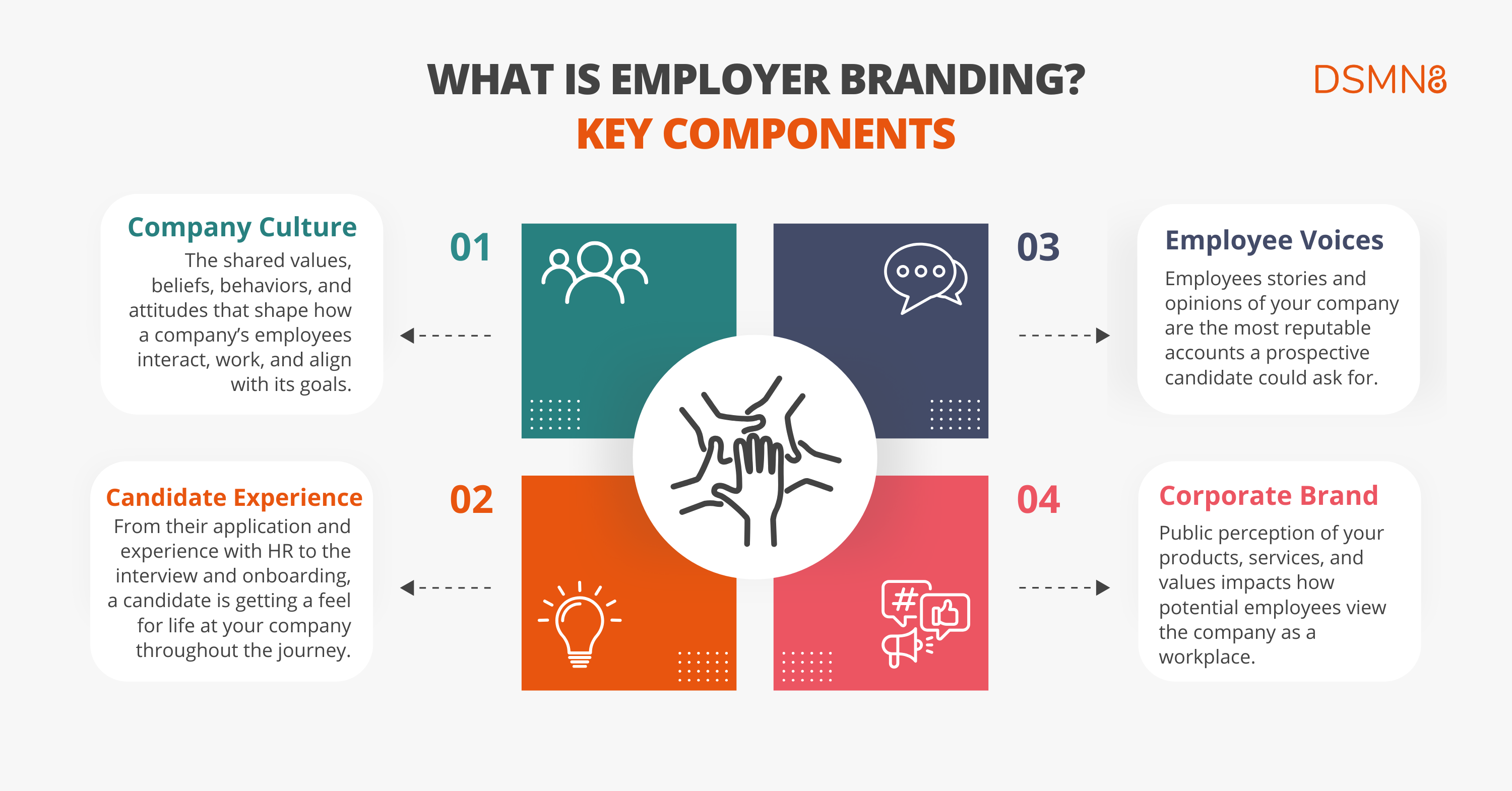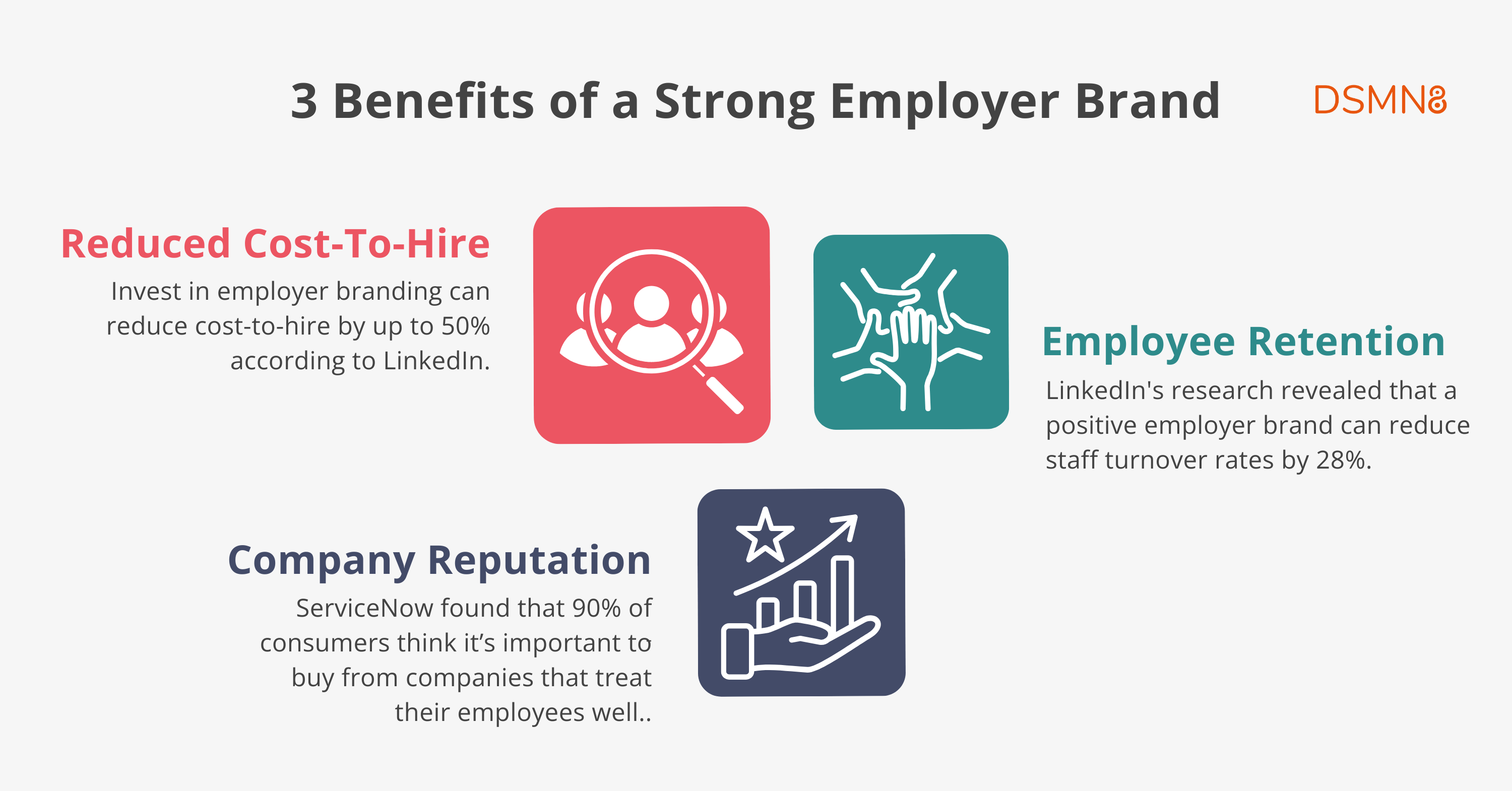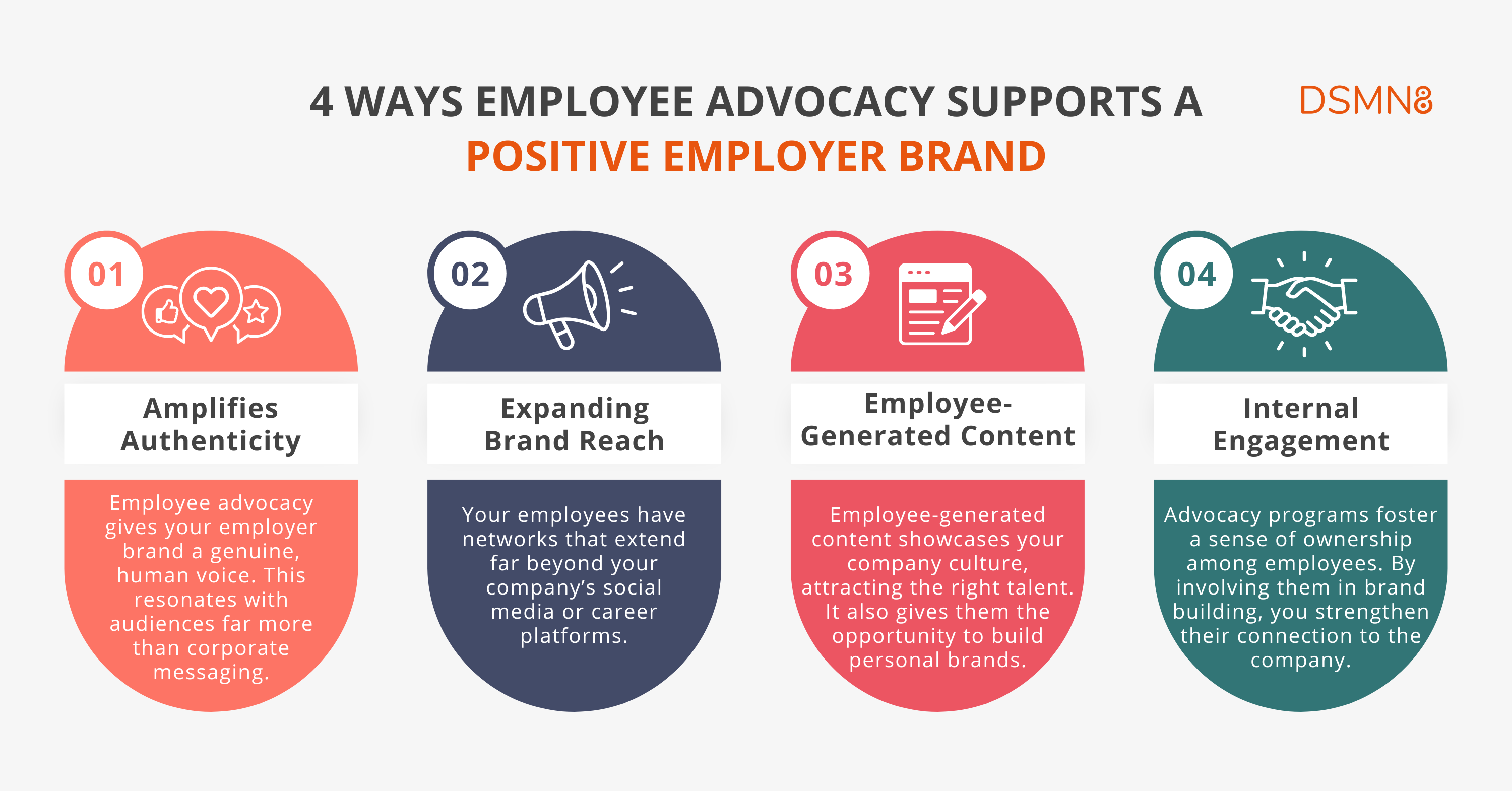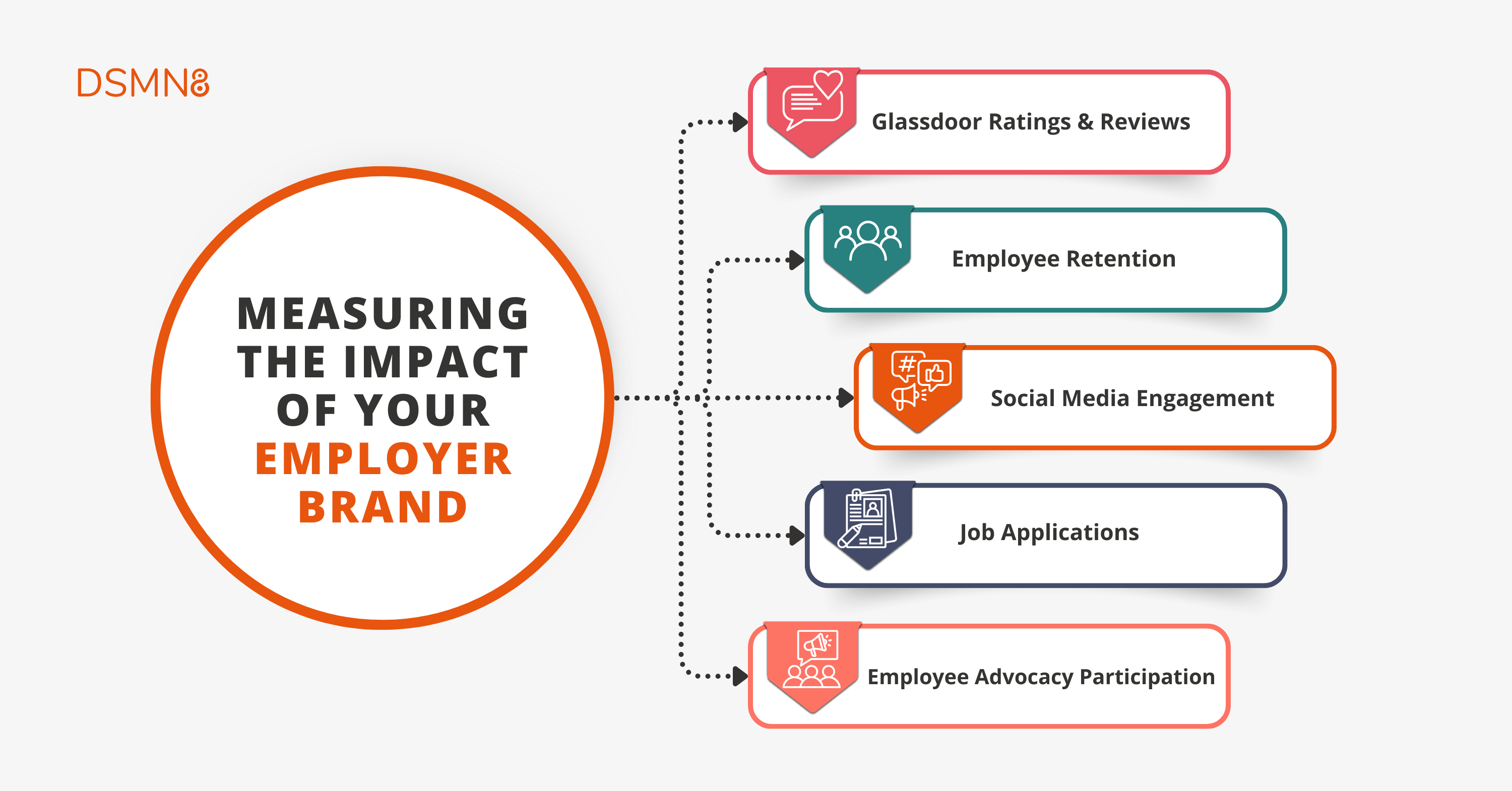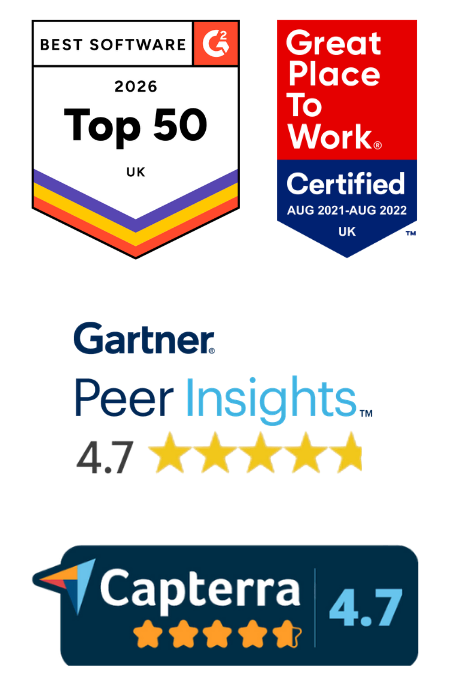
Job hunting has evolved far beyond newspaper ads and static job boards. Today’s job seekers turn to the internet not only to explore opportunities but also to research companies before deciding where to apply.
The power now lies with top candidates—they can evaluate potential employers in detail, uncovering what it’s really like to work for them through platforms like Glassdoor and Fairygodboss. These tools provide an insider’s view, allowing job seekers to make informed decisions long before hitting the ‘Apply’ button.
This shift has fundamentally changed the hiring landscape. An organization’s reputation as an employer is more important than ever before.
As a result, employer branding has become a strategic priority for organizations worldwide. Companies that embrace social media to showcase their culture, values, and employee experience are setting themselves apart as desirable workplaces.
In this article, we’ll explore what employer branding truly means and why it’s an essential ingredient for success in today’s competitive job market.
You will also find insights from thought leaders in various industries, explaining why employer branding is so important to their organizations.
What is Employer Branding?
Your employer brand (or recruitment brand) is your reputation as an employer, both in the eyes of your current team and the talent you hope to attract.
Put simply, it’s how you position and market your organization as a desirable workplace.
According to Glassdoor, four key factors define an employer brand: Company Culture, Employee Opinions, Candidate Opinions, and Corporate Brand.
Let’s break these down 👇
1. Company Culture 🤝
Positive company culture is arguably the cornerstone of building a strong employer brand, consisting of your company’s values, mission, beliefs, and behaviors.
The best organizations don’t underestimate the importance of building a positive company culture. They understand that a team aligned with the company’s mission, beliefs, and values creates a strong foundation for long-term success.
2. Employee Voices 📢
Your employees’ stories and opinions of your company are the most reputable accounts a prospective candidate could ask for. Especially when these accounts are amplified using company review sites and social media.
A study by Nielsen found that people are 92% more likely to trust recommendations from others over any form of branded content. In addition, according to Undercover Recruiter, in 2019, employee referrals made up only 7% of all applicants but 40% of all hires.
Your employees’ accounts can go a long way in amplifying positive stories and reaching quality candidates.
3. Candidate Experience 💼
People say first impressions matter, and to a prospective employee, this couldn’t be more true. The employee journey starts with an application, and their perception of your employer brand will form from the offset.
From their experience with human resources to the interview and onboarding, a candidate is getting a feel for life at your company.
A negative experience risks them sharing this with other prospective employees through word of mouth, social media, or company review websites like Glassdoor.
4. Consumer Brand 🛍️
Consumer brands and employer brands are distinct, but they strongly influence each other. Controversies or unethical practices can damage your consumer brand, while reflecting poorly on your company’s values. This negative perception can deter top talent from wanting to work with you.
86% of study respondents said that they would not consider working for an organization that has a bad reputation with the general public.
As James points out below, most candidates will now check social media before applying for a role.
Why is Employer Branding Important?
Whether you’re actively working on it or not, your organization has an employer brand. Without recognition or management of this, you are powerless to control the workforce’s perception of you as an employer 😬
All too often, employer branding or recruitment branding is neglected, with companies allocating the majority of their marketing efforts to establishing and maintaining their consumer-facing brand. Which, as mentioed above, is hugely important, but holds little relevance other than familiarity when it comes to attracting and retaining top talent.
Your employer brand matters because it helps you attract the best candidates to your company, but perhaps even more importantly, it shows that you are looking after current employees who are essential to the success and growth of your business.
As Eli emphasizes below, people want to work for companies that support their professional growth. In his experience, initiatives like mentorship and training don’t just attract quality candidates but reduce turnover, too:

Eli Itzhaki, CEO & Founder, Keyzoo.
The Benefits of a Strong Employer Brand
Reduced Cost-To-Hire
Anyone who works in HR, or just about any line of recruitment, will know that the hiring process is never cheap or straightforward. In fact, a report from Glassdoor revealed that 76% of hiring decision-makers say attracting quality candidates is their biggest challenge.
Focusing your attention on your employer brand and creating an environment and workplace that people want to be a part of means that quality candidates will seek you out. 75% of job seekers are more likely to apply to work for a firm that actively manages its employer brand.
According to LinkedIn, 59% of recruiting leaders worldwide are investing in their employer brand. No doubt there’s a correlation here, but the same report stated that those who invest in employer branding also cut their cost-per-hire by 50%. These savings are often reinforced when a strong employer brand is supported by curated hiring platforms such as FatCat Remote, helping organizations shorten sourcing cycles and focus spend on qualified candidates.

Marc Hardgrove, CEO, The Hoth.
Employee Retention
Of course, it’s not all about hiring. Staff retention is critical for a healthy and stable organization.
Whether it be through incentives, empowerment, initiatives, or all of the above, ensuring that your current employees are happy and feel valued is the first step in establishing a positive employer brand.
LinkedIn’s research revealed that a positive employer brand can reduce staff turnover rates by 28%, so it absolutely should be a priority for HR departments.

Shehar Yar, CEO, Software House.
Enhancing Company Reputation
Ultimately, improving your employer branding positions your organization as credible, ethical, and people-focused.
This elevates your brand in the eyes of all who interact with it, not just current and potential employees.
A positive employer brand assures investors, partners, and industry leaders that your organization is stable, forward-thinking, and values-driven. It signals that your company attracts and retains top talent, which is, of course, a key indicator of long-term success and sustainability.
Consumers increasingly prioritize companies that treat their employees well. In fact, ServiceNow found that 90% of consumers think it’s important to buy from companies that treat their employees well. And PWC revealed that 76% of consumers would stop using companies if they were found to treat employees badly.
A strong employer brand sends a clear message about your organization’s ethics, values, and commitment to people, boosting customer trust and loyalty.
This is well understood by Antoinette, who emphasizes this as a key reason employer branding is important to her organization:

Antoinette Jackson, Creative Director & Founder, SuperBee.
The Role of Employee Advocacy in Employer Branding
Employee advocacy is a game-changer for building a strong employer brand.
When employees tell their stories, they offer an honest, relatable glimpse into your company culture, values, and vision. This authenticity draws in passionate, like-minded candidates while fostering trust and pride within your current team.
Here are 4 ways an employee advocacy program will support your employer brand:
1. Amplifying Authenticity
Employee advocacy gives your employer brand a genuine, human voice.
When employees share their personal experiences and insights about the workplace, it resonates far more than polished corporate messaging.
This authenticity builds trust with prospective talent and enhances your organization’s credibility.
As Vikrant puts it, “it’s not about promoting; it’s about being transparent” 👏

Vikrant Bhalodia, Head of Marketing & People Ops, WeblineIndia.
2. Expanding Brand Reach
Your employees have networks that extend far beyond your company’s social media or career platforms.
By sharing company updates, job opportunities, and company culture content, your team will amplify your brand’s visibility, reaching untapped audiences in their networks.
Don’t forget that employee advocacy isn’t just about social media. As Dee highlights below, in-person events provide a huge opportunity for employees to advocate for your organization while building their personal brands.
Related post: Employee advocacy for promoting events.

Dee Choubey, CEO, MoneyLion.
3. Employee Content Creators
Giving your employees a voice is one thing, but allowing them to create their own original content is a huge step up.
When your ideal candidates look at your company’s social media channels, what will they see? Will they discover staged stock photos and corporate content, or will they get a genuine feel of what life at your company is really like? 🤔
Encouraging employee-generated content is the most authentic way to demonstrate your company values on social media. Plus, it gives employees the opportunity to build their own personal brands, showing that you trust and support their professional journeys. It’s a win-win when it comes to employer branding!
Related post: Find out how the world’s leading brands showcase their company culture on social media.
4. Internal Engagement
Advocacy programs foster a sense of ownership and pride among employees.
By actively involving them in telling your brand story, you strengthen their connection to the company and create a positive feedback loop: engaged employees share positive stories, which attract great candidates, who in turn strengthen the workplace culture further 🤝
5 Ways to Measure the Impact of Your Employer Brand
Now you understand why employer branding has exploded in recent years, you’ve heard from industry thought leaders and learned about the key benefits of taking a proactive approach to building and maintaining your employer brand.
But how do you measure the impact? The key metrics will depend on your company’s specific goals, but here are five ways to track and evaluate your employer brand:
Brandon has first-hand experience in the power of employer branding when it comes to attracting top talent, achieving a 40% increase in just a few months:

Brandon Leibowitz, Owner, SEO Optimizers.
Final Thoughts & Additional Resources
Employer branding isn’t just a trendy term; it’s a critical strategy for creating a workplace where top talent is eager to join, grow, and thrive.
By highlighting your company’s values, culture, and employee experience, you craft a compelling narrative that not only attracts the right candidates but also builds lasting loyalty among your team.
Think of your employer brand as your company’s identity as an employer. It’s what job seekers are looking for when they browse review sites and social media to see what working for your organization is really like.
Leading companies are prioritizing employer branding to attract top-tier talent, and now is the time to follow suit.
The most effective way to amplify your message? Empower your employees to share it. After all, people trust people, and nothing speaks louder than authentic voices sharing real experiences.
More ways to build and improve your employer branding strategy:
Ready to transform your employer brand?
Book a demo with DSMN8 and discover how employee advocacy can amplify your reach, showcase your culture, and effortlessly attract top talent.
Lewis Gray
Senior Marketing Manager and Employee Advocacy Program Manager at DSMN8. Lewis specialises in content strategy, growing brand visibility and generating inbound leads. His background in Sales lends itself well to demand generation in the B2B niche.

